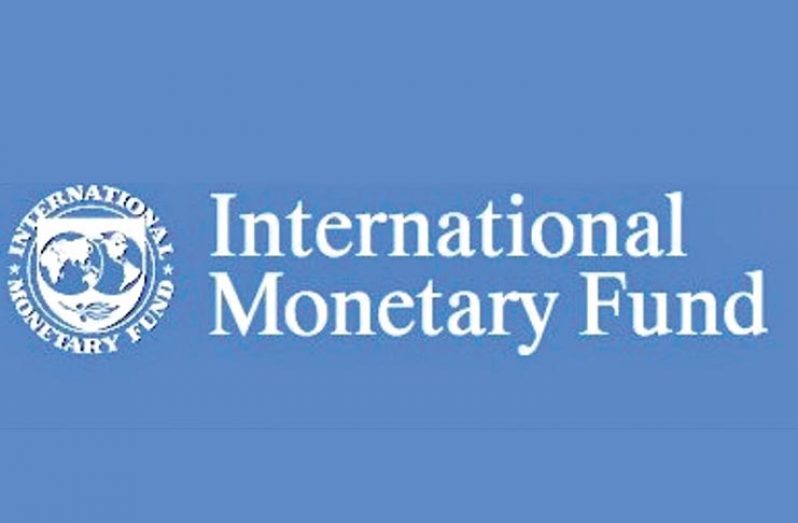…says medium-term prospects “very favourable”
…financial sector “remains stable”
A visiting International Monetary Fund (IMF) Mission concluded that economic growth in Guyana strengthened in 2018 with broad-based expansion across all major sectors.
The team, which met was led by Mr. Arnold McIntyre, visited Guyana between June 3–14 and held discussions with top government officials and other agencies. The team met Prime Minister, Moses Nagamootoo, Finance Minister Winston Jordan, Minister of Legal Affairs and Attorney General Basil Williams , Central Bank Governor Dr Gobind Ganga, other senior officials, representatives from the private sector, banks, the opposition party, labor unions, and other stakeholders.

According a report from the Washington-based organisation, real Gross Domestic Product(GDP) grew by 4.1 percent in 2018, up from 2.1 percent in 2017, led by construction and services sectors. “Inflation remained steady at 1.6 percent at end-2018, on the back of stable food prices and exchange rate”, the IMF said.
It said that for 2019, the mission projects real economic growth of 4.4 percent, driven by continued strength in the construction and services sectors ahead of oil production in 2020, and strong recovery in mining. The IMF cautioned that the authorities here do not foresee any significant spillovers from the crisis in Venezuela at present. However, the influx of migrants into the hinterland and rural areas could put socio-economic pressures on the local communities.
American oil-giant ExxonMobil is expected to commence commercial production of petroleum in 2019 and the while noting that medium-term prospects appear favourable, the IMF said that the commencement of oil production presents an opportunity to scale-up capital and current spending at a measured pace over the medium term to address infrastructure gaps and human development needs, while attenuating debt sustainability concerns at the same time.
Government is also working to regulate the oil sector and the IMF said it welcomes the passage of the Natural Resource Fund (NRF) legislation for managing the country’s natural resource wealth; “it underscores the authorities’ commitment to fiscal responsibility,” the body said.
The IMF noted that to ensure fiscal responsibility is achieved, the mission recommends complementing the NRF legislation with a fiscal framework that constrains borrowing and achieves a balanced budget in the near- to medium-term. To achieve this target, the annual non-oil deficit should not exceed the expected transfer from the NRF. “This would ensure that excessive public expenditure will not lead to debt growing at the same time as the NRF accumulates.”
According to the IMF, it is also necessary to preserve the spirit of the NRF framework, which appropriately aims to save part of the income from oil as net wealth for future generations. The pace of scaling-up public spending needs to be gradual to reduce bottlenecks from absorptive capacity constraints, avoid waste, and minimize macroeconomic distortions related to “Dutch” disease that has often inflicted economies experiencing sizable increases in resource-based income, the body said.
The IMF team also lauded the stability of the financial sector.According to the report, the mission supports the authorities’ resolute efforts in implementing 2016 Financial Sector Assessment Program (FSAP) recommendations.
“Credit to the private sector grew by 4.0 percent in 2018, faster than 2.1 percent in 2017. The banking sector nonperforming loans (NPLs) to total loans ratio have fallen slightly to 11.9 percent as of end- December 2018, from 12.2 percent a year before, but remained high,” the IMF said.
The body said its staff recommends an Asset Quality Review to examine banks’ credit risks and enhance financial sector stability.
The body took note of four bills which were approved by Parliament in 2018, covering deposit insurance, emergency liquidity assistance, bank resolution, and national payment system. The transition to Basel II regime (with some elements of Basel III) is on track for completion by end-2019 the body said and its staff encouraged the authorities here to implement the remaining (Financial Sector Assessment Programme) recommendations.
Guyana has been officially removed from the European Commission’s Money-Laundering Blacklist in February 2019 and is scheduled to undertake a mutual evaluation by the Caribbean Financial Action Task Force in 2022.
The IMF noted that the Financial Intelligence Unit (FIU) has been actively examining cases relating to suspicious transactions, money laundering, terrorist financing and criminal proceeds including those of Politically exposed persons (PEPs), and is working towards greater collaboration with other global Financial Intelligence united (FIUs).
See full report in Tuesdays’ edition of the Guyana Chronicle.




.png)









